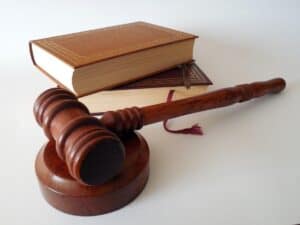
In an unexpected legal twist, NFL legend and media personality Shannon Sharpe is embroiled in a controversial lawsuit tied to his comments about an OnlyFans content creator. The case has sparked debates over privacy rights, online defamation, and the ethical responsibilities of public figures when discussing private individuals.
The Lawsuit’s Core Allegations
The legal dispute reportedly began after Sharpe made remarks about a woman who operates an OnlyFans account during a podcast discussion. The woman, whose name remains confidential due to ongoing legal proceedings, claims that Sharpe’s statements were defamatory and caused her significant emotional distress. She alleges that his comments were not only false but also damaging to her reputation, leading to public harassment and professional setbacks.
According to her lawsuit, Sharpe made “misleading and inflammatory” claims about her work and personal life without factual backing. Legal experts suggest that if proven, these accusations could meet the legal threshold for defamation, which requires false statements presented as facts that result in measurable harm.
Parallels to High-Profile Wrongful Raid Cases
Legal analysts have drawn comparisons between this case and past lawsuits involving mistaken identity and public misrepresentation. One notable example is the FBI wrong house raid lawsuits, where families sued after law enforcement mistakenly targeted their homes, causing trauma and reputational damage. In those cases, courts ruled in Favor of the plaintiffs, emphasizing the severe consequences of baseless public accusations.
Similarly, the woman in Sharpe’s case argues that his platform, boasting millions of followers, amplified false claims, subjecting her to undue scrutiny and emotional suffering. The legal question now is whether Sharpe’s comments were protected opinions or crossed into defamatory territory.
Sharpe’s Defence: Free Speech vs. Defamation
Sharpe’s defense team has countered, arguing that his remarks are safeguarded by the First Amendment’s guarantee of free expression. They argue that his commentary was part of a broader discussion on social trends rather than a targeted attack. Legal experts note that defamation cases involving public figures often hinge on whether the statements were made with actual malice, meaning the speaker knew they were false or acted with reckless disregard for the truth.
However, if the court finds that Sharpe’s remarks were presented as factual claims rather than opinions, he could face liability. The case may also examine whether the woman, as a private individual, is entitled to stronger legal protections than public figures in defamation suits.
Broader Implications for Public Figures and Online Speech
This legal case underscores the increasing conflict between protecting free expression and enforcing responsibility in the online era. Celebrities and influencers wield immense influence, and their words can have real-world consequences. Legal scholars suggest that this case could set a precedent for how courts handle online defamation, especially when it involves discussions about adult content creators, who often face stigma and harassment.
Moreover, the case raises questions about the ethics of public commentary on private individuals. While public figures have the right to express opinions, they also bear some responsibility to avoid spreading misinformation that could harm others.
Read related cases in our Celebrity & Media Lawsuits section.